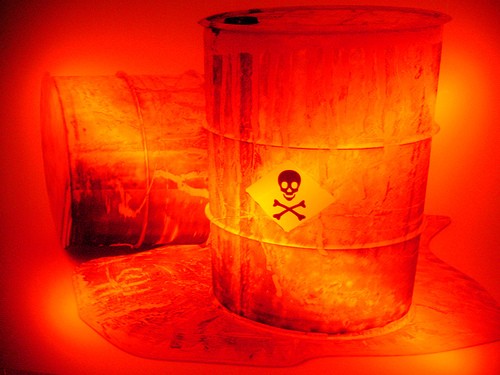
The region famed for its conspicuous consumption conceals its trashy byproducts with little commotion.
But, according to UCI researchers, Latinos and Asians in Southern California are “disproportionately exposed to toxic waste sites,” putting members of affected communities “at risk for numerous diseases and disabilities.”
]
Southern California's response to the necessary-evil of toxic waste disposal isn't exactly color blind.
The hazardous waste removal sites (four in Orange County alone) and manufacturing plants (producing chemical-laden petroleum products, cleaning solvents and paints) are far more likely to be located within the proximity of ethically diverse census tracts.
These sites emit toxic chemicals into the environment and impact the public health of the neighboring communities, according to UCI researchers, who evaluated six heavily populated, ethnically diverse Southern California counties between 1990 and 2000.

Led by John Hipp, UCI associate professor of criminology, law & society, the research team analyzed about 3,000 Southern Californian census tracts and found that Latino and Asian communities are more adversely effected by toxic waste proximity than both Caucasian and African-Americans.
Tracts with 15 percent more Latinos than average were a staggering 84.3 percent more exposed to toxic waste. Tracts with 15 percent more Asians than average were 33.7 percent more exposed to toxic waste.
In stark contrast, tracts with higher levels of residents with bachelor's degrees are exposed to 88.8 percent less toxic waste.
Hipp highlights the discrepancies in education and awareness, citing that immigrants may not grasp the full risks of living close to toxic waste sites. Many residents are wholly unaware of their immediacy to toxicity; others don't have much of an option.
At the community level, Hipp advocates for increased educational outreach and programming for ethnic communities near toxic sites. Small community endeavours are the needed catalyst to enact a larger-scale policy shift to reduce pollution exposure among susceptible populations, according to UCI.

Past research indicates that under-served populations bare the impact of environmental degradation all too frequently. Orange County is no exception.
Information about hazardous household wastes is available at www.oclandfills.com
To report illegal dumping in Orange County, call 1-800-69-TOXIC.

